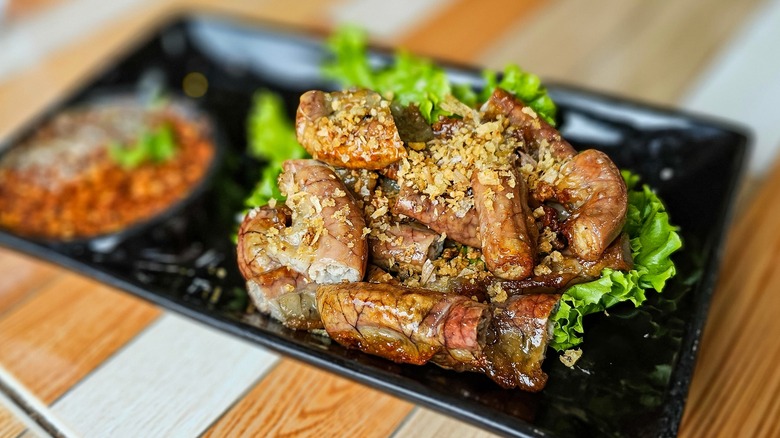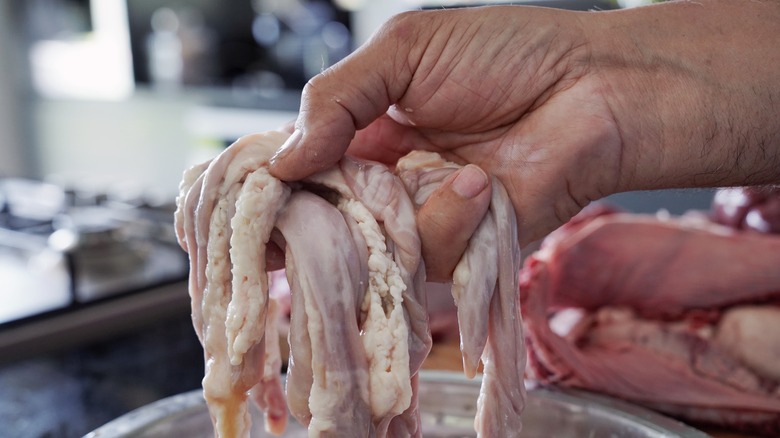Not Sure How To Clean Chitterlings? We Have You Covered
Chitterlings, also known as chitlins, are a common sight on tables in the southern United States. An iconic soul food dish, they consist of pig intestines. As you would imagine, it is crucial to clean them correctly to eat them safely. Before you even begin to clean chitterlings, the CDC recommends boiling them for five minutes to protect yourself from harmful contaminants. To clean them, you'll need vinegar or baking soda, in which you'll soak them after rinsing them off. You should rinse them again after slicing them in half and continue until the water turns clear. Make sure not to eat them raw, as the intestines could contain harmful bacteria if they were cut during slaughter.
After cooking chitlins, it's vital to clean any surfaces you were working with them on. According to the CDC, a mixture of bleach and water is best. Sanitize kitchen surfaces, utensils, light switches, sinks – basically anywhere your hands or the chitlins could contaminate. Before continuing your day, wash your hands thoroughly to prevent germ spread. If sickness does occur, it can be quite harmful.
The harm of improperly prepared chitterlings
Failure to prepare chitlins correctly can result in Yersinia, which is particularly harmful for children. It's important that adults monitor children in a room other than the kitchen during the process to prevent infection. The disease, which can occur anytime up to seven days after contact with chitlins, can cause bloody diarrhea, stomach pain, fever, skin rash, and joint pain. In severe cases, the infection can wind up in your blood. Each year in the United States, Yersinia is the cause of 35 deaths, 640 hospitalizations, and 117,000 infections. These complications made Aretha Franklin have to stop eating chitlins.
Chitlins that aren't properly washed can also cause E. Coli and Salmonella. Like Yersinia, E. Coli is responsible for stomach pain and diarrhea, along with nausea and vomiting. Salmonella can result in many of the same symptoms, and it can be life threatening if not treated properly. This is why it's important to thoroughly wash your chitlins if you choose to enjoy them this holiday season.

